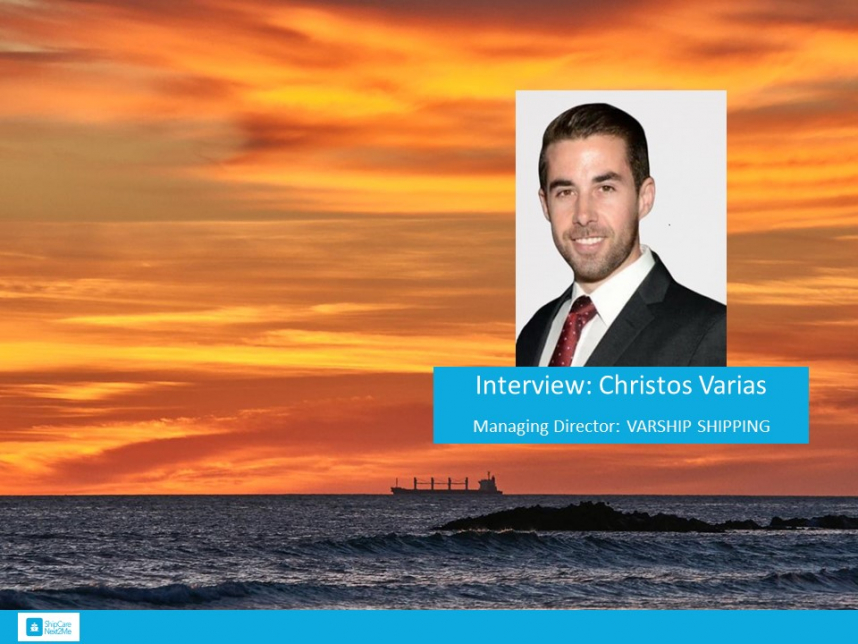
The great and unprecedented difficulties faced by the shipping world since the beginning of the pandemic caused serious problems in the management of the crews, but also in many issues concerning the safety and health of seafarers.
Christos Varias, Managing Director of Varship Shipping, responds to DoctorNext2Me about the major challenges in terms of Safety, Health, and Welfare at this time, the crew management issues during the SARS-CoV-2 Pandemic, the difficulties that have arisen during the pandemic and make it difficult for seafarers to return home, and the measures his company took to protect the seafarers
- Were there any particular crew management issues during the SARS-CoV-2 Pandemic?
The shipping industry is facing unique and challenging times. Uncertainty, lack of common strategy from major ports of the world, and delay in taking decisions at the beginning brought disruption onboard the ships. Crew changes were not allowed, Port Authorities prevented third parties to deliver items on board, such as spares, stores but the most important provisions and absence of medical assistants in ports were some of the effects of the pandemic.
Anyone can understand the seafarer’s mental condition by these restrictions.
Later on, Port Authorities enforced specific regulations, everyone got used to the new situation and had to follow certain instructions. But still, there are some ports that forbid crew changes to take place.
It’s worth mentioning, that seafarers face similar issues to their hometowns as well. Renewing certificates, undergoing medical examinations, and visiting training centers under these conditions is really tedious and dangerous.
- What are the major challenges in terms of Safety, Health, and Welfare at this time?
The risk of an infected person or item getting on board and spread the virus is still high. Although, new regulations have been introduced by the Port Authorities, a new routine has been established onboard the ships to protect our seafarers' health. Anti-covid protecting equipment, disinfection of the accommodation on board, daily check of the temperature of the seafarers are some of the measures taken. The major challenge though was to maintain the physical but also the mental health of our seafarers. We had taken extreme actions to provide medical assistance to a certain case but also to overlook costs in order to bring our seafarers directly to their province.
- What particular difficulties have arisen during the pandemic and make it difficult for seafarers to return home?
In the beginning, in order to limit the spread of the virus, most of the ports refused crew changes to take place and others stopped their operation and suspended their services. Imagine, how many ships were stuck in anchorage for many months. In addition to that, some countries made it extremely difficult for seafarers to repatriate as airports were working under certain directions, flights between major crew changes ports were suspended, and finding a single ticket was almost impossible.
- What measures did your company take to protect your seafarers?
Our seafarer's physical and mental health is our top priority. Since the start of the pandemic, even before IMO provided the first guidance and regulations, we were constantly giving instructions to our seafarers on how to protect themselves. We provided disposable plastic robes, antiseptics, disposable gloves, and face masks not only for our crew but for anyone who went onboard.
We also faced difficulties in crew changes, but with the proper coordination with the authorities and communication with our seafarers, we managed to complete them successfully. Most of our repatriated seafarers landed directly to their province safely.
It has been proven once again, that by building and maintaining a strong relationship with our crew, any difficulty can be overpassed.